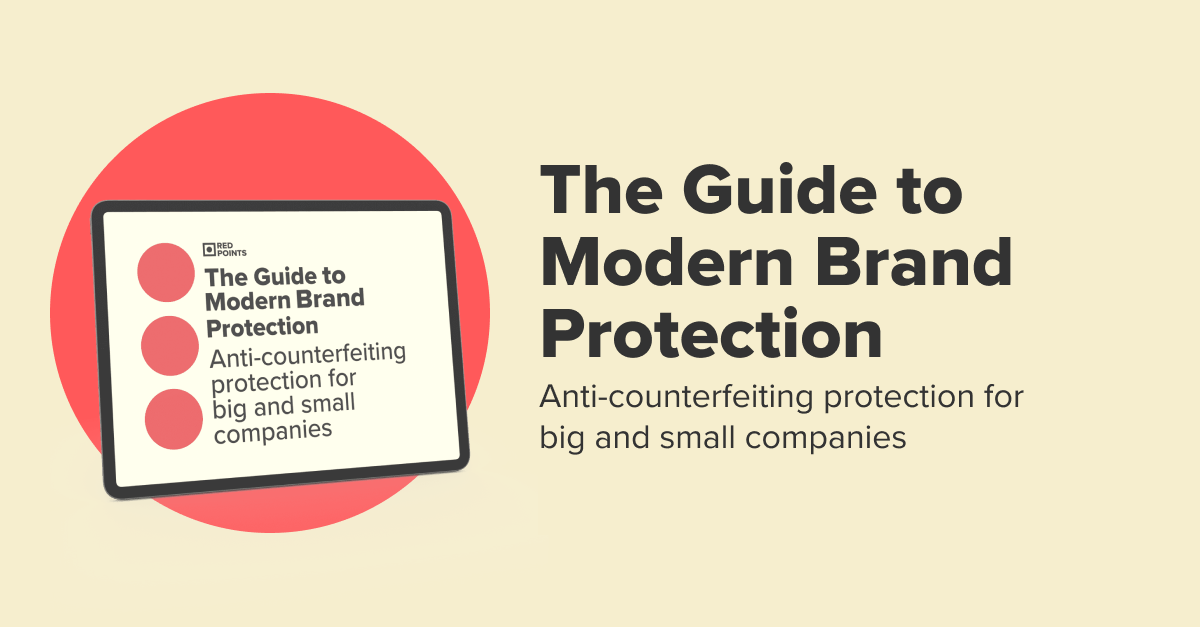Do you have an exciting business idea up your sleeve? If so, it’s crucial to safeguard it from potential threats. Until it’s legally protected, scammers, malicious entities, and even legitimate competitors might be tempted to copy your idea and, consequently, your potential earnings.
The loss of your intellectual effort and innovation due to inadequate protection is a risk you don’t want to take. But in the realm of business, it’s a common oversight among entrepreneurs. This lack of preparedness for asserting and enforcing their intellectual property rights means that others can appropriate their ideas freely.
In this guide, we’ll explain how to address this issue, and the steps you can take to legally protect your business idea. We’ll also share strategies for asserting your ownership and combating intellectual property infringements as they arise.

How to legally protect your business idea
- Register your intellectual property (IP) portfolio
- Monitor for infringements of your protected business ideas
- Enforce IP ownership and take down infringements
- Employ a brand protection software
Register your intellectual property portfolio
The first step to legally protect a business idea is fairly straightforward: you want to register ownership of your intellectual property. Intellectual property refers to the ownership of intellectual creations, ideas, and concepts. Common examples of business IP include brand logos and names, inventions, and product designs.
Having formal registrations for each of your business ideas will help stop infringements of your intellectual property. There are four distinct types of IP that will protect your business ideas, and it’s important you register them correctly. The four types of intellectual property are copyrights, trademarks, patents, and trade secrets.
1. Copyrights
Copyrights protect original creations. Copyrights protect your unique business content from being replicated. This means that someone can’t legally make a copy of your creation, whether they go on to sell it or simply copy it for themselves.
There are many types of content that would fall under copyright protection as it pertains to your business. For example, blog articles, web content, unique patterns, and graphic designs are all forms of business copyright content that you can register.
While copyright applies automatically to the creator, it’s still a good idea to get it registered to best protect your copyrighted content. This will create a record and make it easier to prove your ownership of creations if you have to take down an infringement.
2. Trademarks
Trademarks protect the content and ideas that help customers distinguish your brand from others. Common business trademark examples include brand names, logos, slogans, and particular product packaging and/or design.
Trademarks, like copyrights, are automatically applied and protect your unique brand identifiers from being used by scammers or competition.
Again, we do recommend you officially register your business trademarks if you want the best protection for your business ideas. Registering your business trademarks grants you the right to take legal action against anyone infringing on your IP and using it for themselves.
3. Patents
Patents protect inventions that may or may not yet exist, and therefore help protect ideas and concepts vs. existing creations like copyrights and trademarks.
Unlike the former types of intellectual property rights, patents aren’t automatically applied to inventions and require registration with the United States Patent and Trademark Office.
Patents are necessary to protect your invention and keep it from being stolen and replicated. To enforce a patent and take down anyone stealing your idea, you’ll need this legal registration in your IP portfolio.
4. Trade Secrets
Trade secrets protect the particular processes and information a business uses to operate and succeed. Common examples of trade secrets include recipes, processes used to create or analyze content, and client lists used for sales.
Trade secrets are another type of intellectual property that is automatically granted to the owner. To be considered a trade secret legally, you must ensure the information is:
- Beneficial to your business because it is a secret
- Beneficial to others (like consumers) who can’t access the information
- Reasonably protected by the owner to ensure the information does not become public knowledge
If someone steals your trade secrets, you have the legal right to enforce your ownership and take legal action against them. This is vital to ensure your competition cannot benefit from your unique business ideas.
Once you have the proper registrations for all of your intellectual property, make sure you keep a detailed record. Developing an IP portfolio will mean that you and the rest of your team know exactly which of your content is protected. It will also be necessary to prove ownership of your IP if you have to deal with infringements.
Monitor for infringements of your protected business ideas
Registering your IP will help you claim legal ownership of your business ideas, but it won’t necessarily stop bad actors from stealing your IP anyway. It’s especially easy for scammers to steal your content and business ideas and infringe on your IP online, where counterfeiting and brand impersonation are rampant.
To protect a business idea from being stolen, you must be on the lookout for anyone infringing on your content. Monitor for infringements across all of your sales channels, as well as places where you don’t currently sell your products or operate your business.
Common places for IP infringements to occur include fake websites, Ecommerce marketplaces like Amazon and Shopify, and social media platforms like Facebook and Instagram. To best protect your business ideas and content, it’s important to monitor for infringements on as many of these channels as possible.
Enforce IP ownership and take down infringements
If you do notice someone infringing on your intellectual property, enforce your ownership and submit a claim to have it taken down immediately. If left alone, someone can completely damage your brand reputation and steal your revenue by producing and selling your intellectual property.
How are intellectual properties enforced?
One universal way to enforce ownership of your IP is to send a cease and desist letter to the infringer. This notifies them that they have unlawfully used your protected content and will face legal repercussions if they don’t take down the infringement. It also creates a record for you to use in court if you need to proceed with legal action.
You can also report an infringement to any platforms the stolen content appears on, if applicable. You can report an infringement on Instagram, for example, and other social media platforms, Ecommerce marketplaces, and search engines.
No matter what methods you use to enforce your intellectual property, it’s important to keep following up until the infringement is taken down. If you aren’t successful with these tactics, it’s a good idea to invest in an IP lawyer or brand protection expert.
Employ a brand protection software
With the volume of scammers and bad actors online, protecting your business ideas from being stolen can be nearly impossible alone. Employing a Brand protection Software like Red Points can help you monitor for infringements on the scale you need to properly protect your business ideas.
Red Points software can change the way you enforce your IP by making the process completely automatic. Instead of spending days scouring thousands of sites and platforms yourself, this software keeps a constant monitor for infringements all across the web. It also sends automatic takedown requests when infringements are identified, so you don’t have to waste time writing and sending C&D letters.
What’s next
There are thousands of scammers, bad actors, and even industry competitors out there who can easily steal your intellectual property. It is vital to protect your business ideas and enforce your IP to ensure others aren’t stealing your revenue and profiting off your ideas.
Red Points can help protect your business idea with 24/7 infringement monitoring and automatic takedowns that save you time, stress, and money. Request a demo today and learn more about our services. See how you can protect your business with the most advanced Brand Protection Software..






